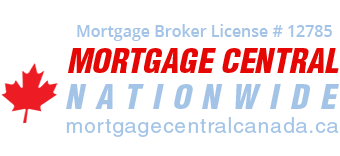Mortgage Rate Hike Possibly Coming Soon
It looks like recent job losses are not going to prevent an upcoming mortgage rate hike. The Bank of Canada is still poised to raise interest rates in October 2018 despite the losses in the part-time work market in August.
Survey Results Fuel Disappointment?
The August 2018 survey of the Statistic Canada’s Labour Force was released after an earlier report came out stating that the rates will remain the same for the time being. Many were disappointed with the reported figures although investors expressed that they still think that an interest rate hike will be announced on October 24. This prediction has a certainty rate of about 60%.
Andrew Kelvin, TD Securities Senior Rates Strategist thinks that the survey results will still lead to an October interest rate hike. Note that the survey data shows that 51,600 jobs were lost in August 2018 further increasing the jobless rate from 5.8% in July to 6% in August. This is not the whole picture though, employment rate grew by 0.9% YoY or about 172,000 jobs. Aside from this, hourly wages for August rose by 2.6% compared to a similar time period in 2017; however, this figure is the lowest in the past year since October 2017.
What The Numbers May Mean
Meanwhile, Reuters reported that a similar event might happen in Canada, referring to the expected increase in interest rates in the US by the Federal Reserve following a strong showing of the US job market.
BMO Capital Markets Senior Economist Sal Guatieri says that although the part-time job figures this month was disappointing for showing a retraction compared to the previous month’s gains, full-time jobs are still up and that is good news, stating that full-time positions increased by 40,400 positions despite part-time employment decreasing by 92,000 jobs.
Canada’s most populous province Ontario had 2 months of increases but lost 80,100 jobs in August while employment grew in other places such as Manitoba and Alberta.
More Interest Rate Hikes in Canada Foreseen
Interest rates are also likely to further increase in the coming year, although it may be too early to predict right now just by how much the looming interest rate hike will increase. Some speculate that the interest rates will face a few more hikes before it settles to a more stable rate by 2020. It might be best to get one’s finances in order this year before further increases take effect to avoid paying higher interest rates.
With mortgage interest rates poised to increase in the near future, now would be the perfect time to apply for a mortgage or other loans if you’re planning to buy a home, invest in property, or consolidate debts. If you want to find alternative lenders in Canada or interested to find out how much you can borrow for your needs, contact us and we will find the best financial solution for you. We will assess your current situation and propose possible solutions that will work for you and possibly save you lots of money as well. Talk to us today!
For more mortgage related news or to apply for a home equity loan, second mortgage, home equity line of credit and more, please visit us at: https://mortgagecentralcanada.ca/






